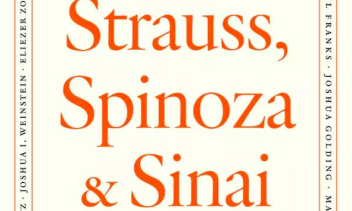Your faith was strong but you needed proof…
– Leonard Cohen
Chanukah comes at a particularly vulnerable point in the cycle of time. It’s a time of lengthening nights and shortened days, and it’s not surprising that we celebrate at precisely the point in which we have the least of it. Our bodies are catching up to the new reality of winter coats and our hearts to the diminished sunshine of the new regime. For many of us, winter hits harder at precisely this point. We are all immigrants of sorts at this juncture, memories of summerland fading in our minds but still alive enough to make us resent the coming cold.
We are immigrants to the sea, the salty waters of our lives still stinging, and we are immigrants to the freshwater as well, shocked by how sweet life can be at times.
In the natural world—for those of us imprisoned in concrete jungles and suburban hinterlands—there is a meeting point that parallels this phenomenon: the estuary. Estuaries are where freshwaters meet the sea, the sea receiving the new bounty, always unsatisfied. When salmon move from the freshwater to the sea, they go through a process of inner change called smoltification. You’ll read more about this process in the reader, but it is my humble opinion that Chanukah helps us with our own smoltification of sorts, as we too adjust to the new reality that we are.
This is part of the story of rationality as well, as we emerge from the clear sun of summer into the heady nights of winter, the mythological power of light and dark become more powerful than ever. As our most recent guest, Rabbi Dr. Sam Lebens, the brilliant heart and mind himself, points out, it’s a mistake for us to conceptualize myth and rationality as enemies. More often than not, myth, mysticism, and rationality are close neighbors and lovers, not the enemies we often assume them to be. As we think about this relationship, and the relationship by which we can more comfortably move between the world of light and summer to the dark world of winter, we turn also to an original rationalist, Plato, and consider the complex ways that myth, rationality, and meaning all come together in his long literary afterlife.
We are all immigrants in this era, immigrants to Spaceship Earth and to whatever land and lore in which we currently find ourselves entangled. We are immigrants to the sea, the salty waters of our lives still stinging, and we are immigrants to the freshwater as well, shocked by how sweet life can be at times. As we try to make sense of it all, and find light in astounding layers of darkness, we turn to three articles for a sense of meaning. “The Psychological Immigrant”, “A Healing Estuary,” and “Why Philosophy Needs Myth.” Let us turn to these teachings with an open heart, and like a lonely Jew before a lit menorah, let’s open our eyes a bit more to the light—together.







